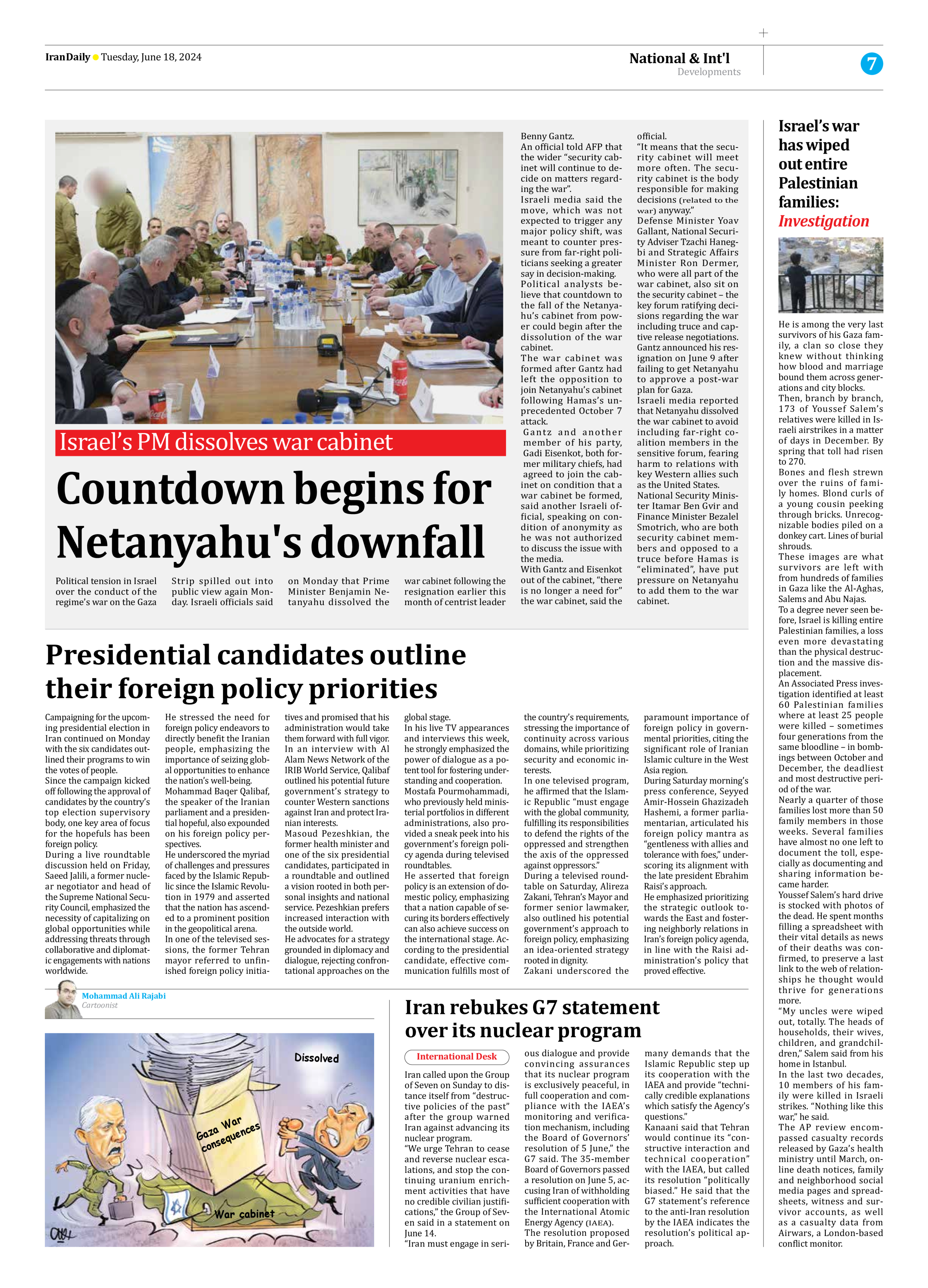
Presidential candidates outline their foreign policy priorities
Campaigning for the upcoming presidential election in Iran continued on Monday with the six candidates outlined their programs to win the votes of people.
Since the campaign kicked off following the approval of candidates by the country’s top election supervisory body, one key area of focus for the hopefuls has been foreign policy.
During a live roundtable discussion held on Friday, Saeed Jalili, a former nuclear negotiator and head of the Supreme National Security Council, emphasized the necessity of capitalizing on global opportunities while addressing threats through collaborative and diplomatic engagements with nations worldwide.
He stressed the need for foreign policy endeavors to directly benefit the Iranian people, emphasizing the importance of seizing global opportunities to enhance the nation’s well-being.
Mohammad Baqer Qalibaf, the speaker of the Iranian parliament and a presidential hopeful, also expounded on his foreign policy perspectives.
He underscored the myriad of challenges and pressures faced by the Islamic Republic since the Islamic Revolution in 1979 and asserted that the nation has ascended to a prominent position in the geopolitical arena.
In one of the televised sessions, the former Tehran mayor referred to unfinished foreign policy initiatives and promised that his administration would take them forward with full vigor.
In an interview with Al Alam News Network of the IRIB World Service, Qalibaf outlined his potential future government’s strategy to counter Western sanctions against Iran and protect Iranian interests.
Masoud Pezeshkian, the former health minister and one of the six presidential candidates, participated in a roundtable and outlined a vision rooted in both personal insights and national service. Pezeshkian prefers increased interaction with the outside world.
He advocates for a strategy grounded in diplomacy and dialogue, rejecting confrontational approaches on the global stage.
In his live TV appearances and interviews this week, he strongly emphasized the power of dialogue as a potent tool for fostering understanding and cooperation.
Mostafa Pourmohammadi, who previously held ministerial portfolios in different administrations, also provided a sneak peek into his government’s foreign policy agenda during televised roundtables.
He asserted that foreign policy is an extension of domestic policy, emphasizing that a nation capable of securing its borders effectively can also achieve success on the international stage. According to the presidential candidate, effective communication fulfills most of the country’s requirements, stressing the importance of continuity across various domains, while prioritizing security and economic interests.
In one televised program, he affirmed that the Islamic Republic “must engage with the global community, fulfilling its responsibilities to defend the rights of the oppressed and strengthen the axis of the oppressed against oppressors.”
During a televised roundtable on Saturday, Alireza Zakani, Tehran’s Mayor and former senior lawmaker, also outlined his potential government’s approach to foreign policy, emphasizing an idea-oriented strategy rooted in dignity.
Zakani underscored the paramount importance of foreign policy in governmental priorities, citing the significant role of Iranian Islamic culture in the West Asia region.
During Saturday morning’s press conference, Seyyed Amir-Hossein Ghazizadeh Hashemi, a former parliamentarian, articulated his foreign policy mantra as “gentleness with allies and tolerance with foes,” underscoring its alignment with the late president Ebrahim Raisi’s approach.
He emphasized prioritizing the strategic outlook towards the East and fostering neighborly relations in Iran’s foreign policy agenda, in line with the Raisi administration’s policy that proved effective.







